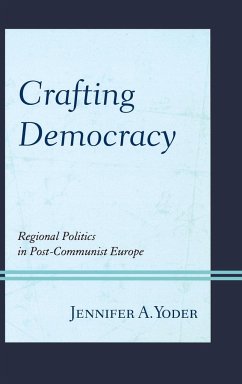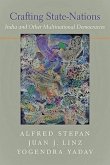A decade after the fall of the Iron Curtain and the beginning of democratization and marketization in East Central Europe, a handful of countries introduced territorial and administrative reforms and created regional "self-governments": autonomous subnational-level assemblies elected by universal suffrage. This comparative study of Poland, the Czech Republic, Slovakia, and Hungary explores the reasons for these reforms and their consequences for post-communist democracies. In the context of the long-standing development of regions in Western Europe, Jennifer A. Yoder argues that a new approach is needed to explain recent regional reforms-and their wide variablity-in post-communist Europe. Her study offers a nuanced and authoritative account of a category of reforms that gets to the heart of democratization after communism: how to distribute authority within a new system.
Hinweis: Dieser Artikel kann nur an eine deutsche Lieferadresse ausgeliefert werden.
Hinweis: Dieser Artikel kann nur an eine deutsche Lieferadresse ausgeliefert werden.








